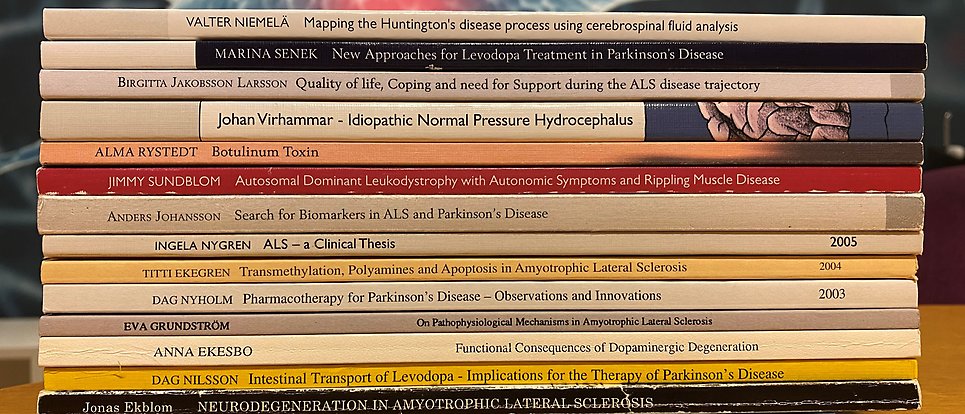Parkinson's disease and other movement disorders

Our group has been researching various aspects of movement disorders for many years, in particular Parkinson's disease, but also atypical parkinsonism (e.g. multiple system atrophy, MSA), essential tremor and cervical dystonia. Several projects involve biomarkers, both biochemical and imaging (magnetic resonance imaging and positron emission tomography, PET). Clinical markers are also being investigated using, for example, objective motion analysis and balance tests. One of several aims is to identify disease processes earlier than is currently possible.
Details
- Type of funding: ALF funds, donations and external grants.
Project description
Our studies on treatment optimisation in Parkinson's disease have resulted in three approved levodopa-containing drug formulations (two pump treatments and one minitablet formulation). Further clinical trials are ongoing and planned, in terms of neuroprotection as well as symptom relief and quality of life. Studies on the expectations and effects of deep brain stimulation (DBS) are also ongoing.
The Neurology Clinic at Uppsala University Hospital was the first in the country to use botulinum toxin in clinical practice, for various indications such as cervical dystonia, post-stroke spasticity and hyperhidrosis. Our research has defined the dose relationship between different toxin products for optimised use in different indications.
Collaborating partners
Collaboration is ongoing with other researchers in Uppsala, but also nationally and internationally.
